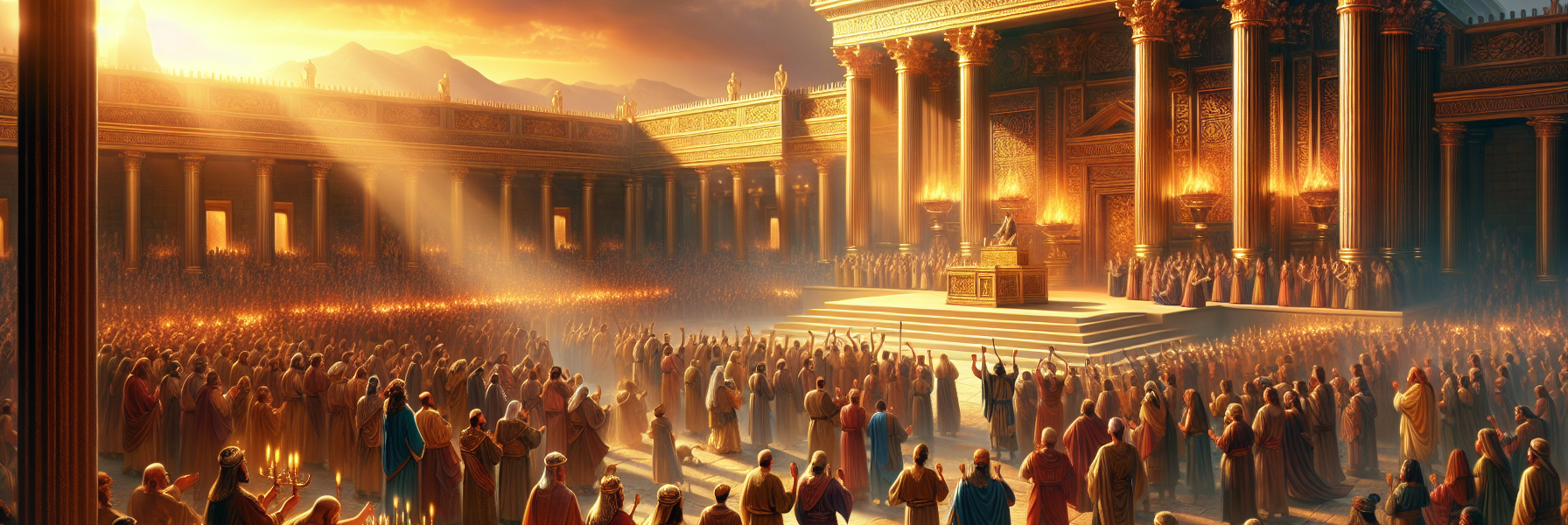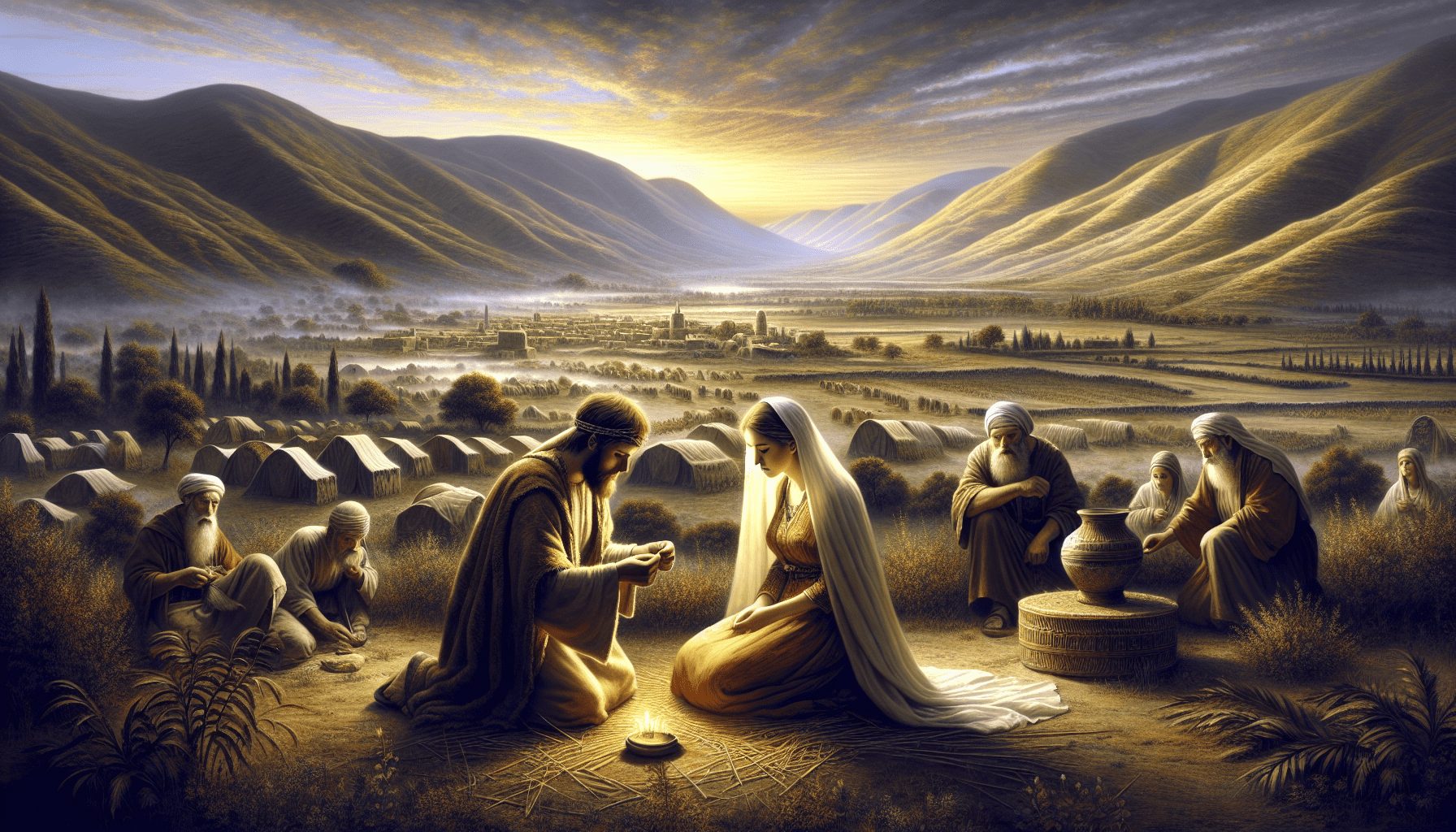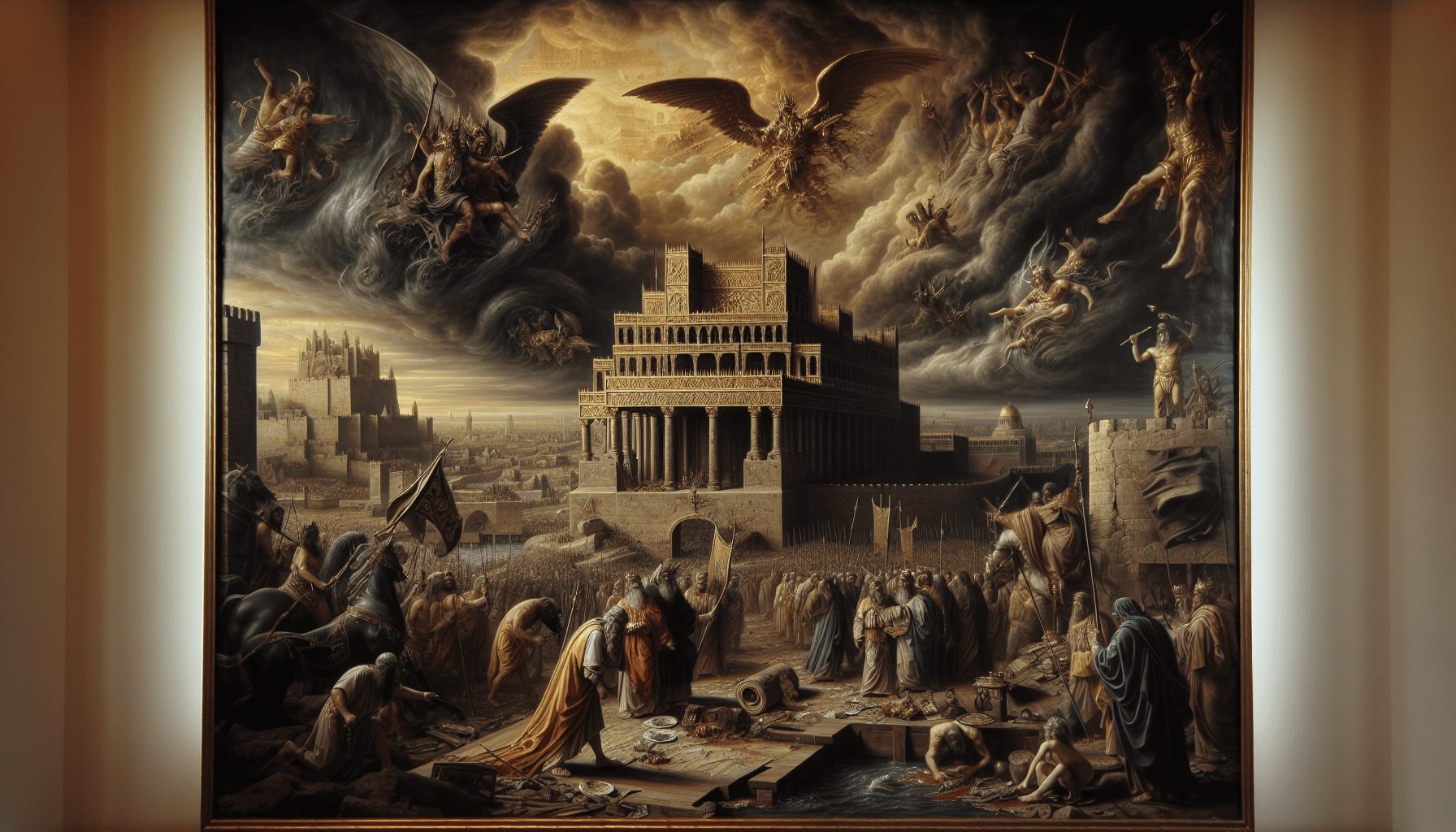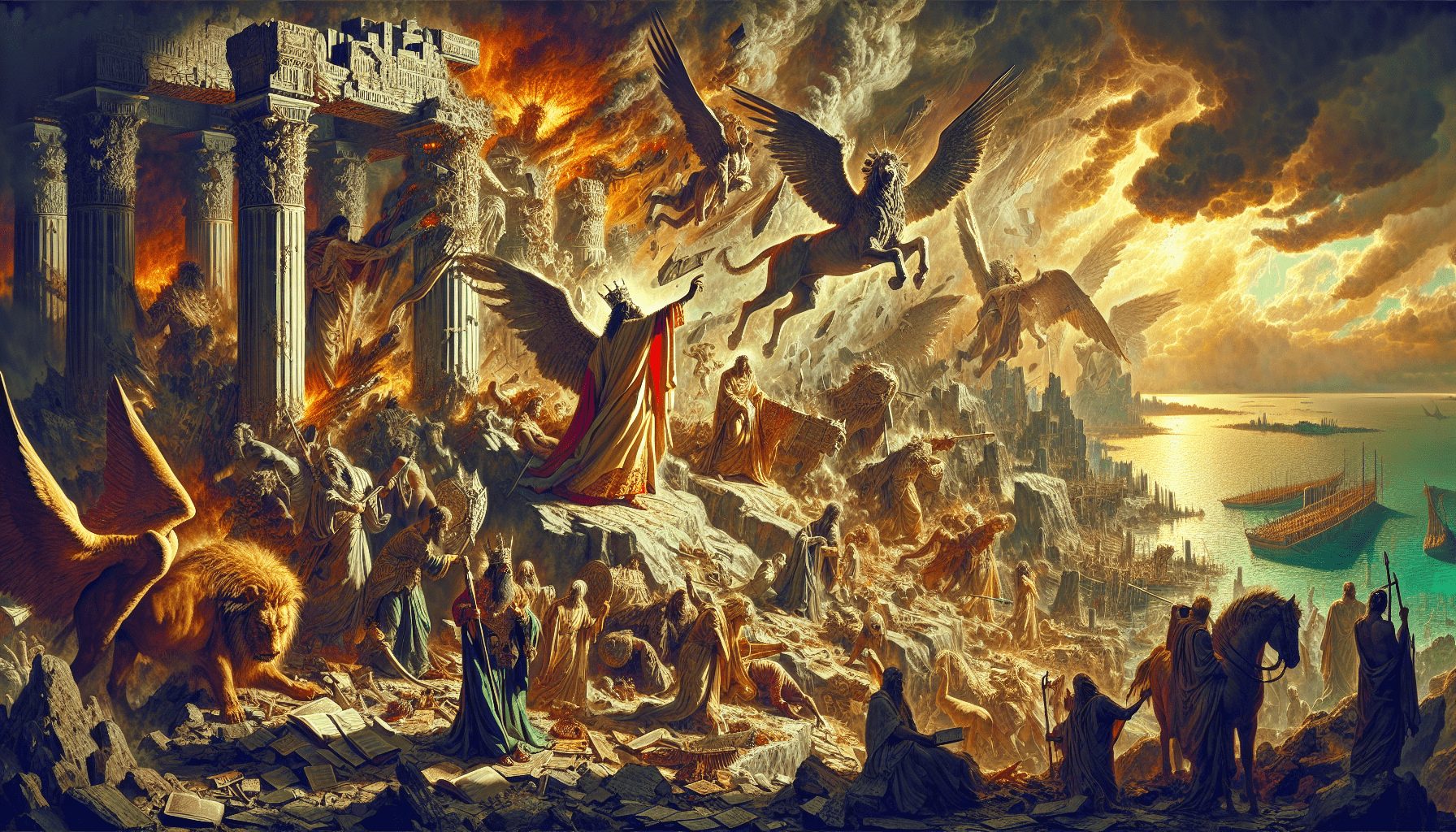**The Dedication of the Temple: Solomon’s Prayer of Consecration**
The golden rays of the setting sun bathed Jerusalem in a divine glow as the people of Israel gathered before the newly completed Temple. The air was thick with the scent of burning incense and the sound of trumpets, cymbals, and the voices of Levites lifted in praise. King Solomon, adorned in royal robes, stood before the great bronze altar in the courtyard, his heart swelling with reverence. The moment had come—the moment to dedicate this magnificent house to the Lord, the God of Israel.
Before the assembled multitude—the elders, the leaders, the heads of tribes, and the families of Israel—Solomon raised his hands toward heaven. The vast crowd fell silent, their eyes fixed upon their king as he began to pray. His voice, steady and solemn, carried across the sacred space, rising like sweet incense before the throne of the Almighty.
**”O Lord, God of Israel,”** Solomon proclaimed, **”there is no God like You in heaven or on earth. You keep Your covenant of love with Your servants who walk before You with all their hearts.”**
The king’s words echoed the faithfulness of God, who had promised his father David that his son would build a house for His name. Now, as Solomon stood in the shadow of this glorious Temple, he marveled at the fulfillment of that promise. Yet he knew—this house, though splendid, could not contain the infinite God.
**”But will God indeed dwell with man on earth?”** Solomon continued, his voice trembling with awe. **”Behold, heaven and the highest heaven cannot contain You, how much less this house that I have built!”**
The people bowed their heads, their hearts stirred by the humility of their king. Solomon then stretched his hands toward the sanctuary, his prayer shifting to intercession for Israel. He pleaded with the Lord to hear the prayers offered in this sacred place—prayers of repentance, of need, of thanksgiving.
**”When Your people Israel are defeated before the enemy because they have sinned against You, and they turn back and confess Your name, praying and pleading before You in this house, then hear from heaven and forgive the sin of Your people Israel!”**
The king’s words painted a picture of divine mercy. He spoke of drought, famine, and plague—times when Israel would cry out in desperation. He envisioned foreigners, drawn by the fame of the Lord, lifting prayers toward this house. He foresaw battles, exiles, and the contrite hearts of a nation returning to their God.
**”If they sin against You—for there is no one who does not sin—and You are angry with them and give them to their enemies, and they are carried captive… yet if they turn their heart in repentance… and pray toward this city which You have chosen and toward this house which I have built for Your name, then hear their prayer and their plea, and maintain their cause!”**
The weight of Solomon’s petition settled upon the people like a mantle. This was no mere ritual; this was a covenant plea, a recognition that the Temple was a place of meeting between a holy God and a sinful people.
Finally, Solomon rose from his knees, his face radiant with the fire of devotion. **”Now therefore, arise, O Lord God, and enter Your resting place, You and the ark of Your might! Let Your priests, O Lord God, be clothed with salvation, and let Your saints rejoice in Your goodness!”**
As the last words of his prayer faded, a miraculous sign confirmed God’s acceptance. Fire descended from heaven, consuming the burnt offerings and sacrifices, and the glory of the Lord filled the Temple in a cloud so thick that the priests could not stand to minister. The people fell on their faces, crying out, **”For He is good, for His steadfast love endures forever!”**
And in that moment, Israel knew—the Lord had heard. The God of their fathers had drawn near to dwell among His people once more.




